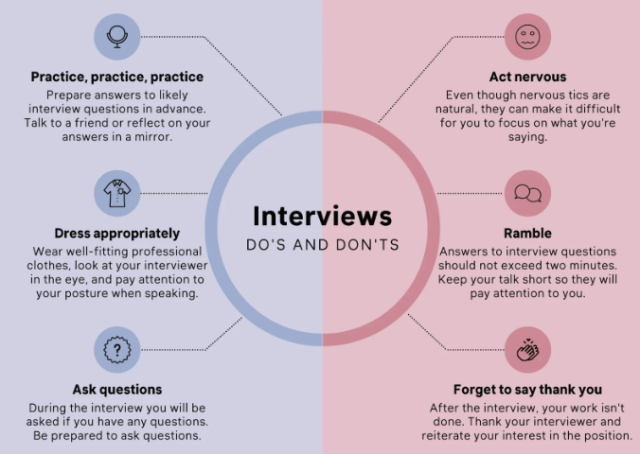Beyond the Textbook: Building a Rewarding Career After 12th Commerce
By: Javid Amin
The world of commerce is no longer confined to dusty ledgers and rows of filing cabinets. Today, it’s a vibrant ecosystem pulsating with innovation, strategy, and a global perspective. For students who’ve just completed their 12th grade in commerce, a plethora of exciting career paths beckon, each offering the potential for professional fulfillment and financial success. This guide delves deep into the diverse landscapes of commerce careers, equipping you with the knowledge and insights to navigate your journey with confidence.
Beyond the Stereotypes: Shattering the Myths
Gone are the days when commerce was perceived as a less-than-stellar alternative to science or engineering. The reality? Commerce education lays a robust foundation for understanding the intricate workings of the business world. It equips you with a keen eye for numbers, a strategic mind, and strong communication skills – all essential ingredients for success in a variety of fields.
A Kaleidoscope of Opportunities: Exploring Diverse Career Paths
The commerce stream is a springboard to a multitude of exciting careers. Here, we explore some of the most promising and in-demand options, catering to a wide range of skillsets and interests:
-
The Stalwarts: Chartered Accountancy (CA) and Cost and Management Accounting (CMA):
-
For the detail-oriented and analytical minds, a career in accounting beckons. Chartered Accountancy (CA) is the gold standard, offering a prestigious designation and the opportunity to be a financial powerhouse. CAs audit accounts, provide crucial financial advice, and help businesses navigate the complexities of the financial world. The path to becoming a CA involves rigorous training and examinations, but the rewards are undeniable – high earning potential, job security, and a respected position within the corporate world.
-
Cost and Management Accounting (CMA) offers another fulfilling path. CMAs delve deeper into the operational aspects of businesses, analyzing costs, ensuring efficient resource allocation, and providing valuable insights to drive profitability.
-
-
The Digital Revolutionaries: Fintech and Business Analytics:
-
The world is hurtling towards a digital future, and the financial sector is no exception. Fintech, the fusion of finance and technology, is revolutionizing the way we manage money. Careers in Fintech involve developing and managing innovative financial products and services that make finance accessible and efficient for everyone. Whether it’s building secure online payment platforms or crafting data-driven investment strategies, Fintech offers the opportunity to be at the forefront of cutting-edge developments.
-
In today’s data-driven world, businesses are awash in information. Business analysts are the superheroes who can decipher this data, identifying trends and insights that help companies make informed decisions. They leverage their analytical skills and understanding of business operations to translate complex data sets into actionable strategies, playing a crucial role in driving organizational success.
-
-
The Creative Communicators: Marketing and Advertising:
- Do you have an innate sense of what makes people tick? Are you a master storyteller with a knack for crafting compelling narratives? Then, marketing and advertising could be your calling. This dynamic field encompasses creating captivating brand stories, managing social media engagement, and devising effective marketing campaigns that resonate with target audiences. From the glamorous world of advertising agencies to the fast-paced environment of digital marketing, careers in this field offer the opportunity to unleash your creativity and make a lasting impact on brand perception.
-
The Global Thinkers: International Trade and Business Management:
-
The world is your oyster with a career in international trade. This exciting field involves facilitating trade deals between countries, managing international logistics, and navigating the complexities of global commerce. From understanding international trade regulations to forging strategic partnerships across borders, a career in international trade offers the thrill of working in a globalized environment and contributing to the flow of goods and services across the world.
-
For those who aspire to lead and manage, the commerce stream provides a strong foundation for a career in business management. This versatile field equips you with the skills to manage teams, oversee operations, and develop strategic plans that propel organizations towards success. Management roles can encompass diverse areas such as human resources, project management, or operations management, allowing you to specialize in your area of interest.
-
Sharpening Your Sword: Building a Competitive Edge
While academic qualifications are important, success in the world of commerce hinges on more than just grades. Here are some key strategies to elevate your competitive edge:
-
Master the Art of Communication: Effective communication, both written and verbal, is paramount. Hone your ability to articulate ideas clearly, concisely, and persuasively. Public speaking skills and the ability to present complex information in a compelling way will be invaluable assets.
-
Embrace Lifelong Learning: The business world is a dynamic landscape that constantly evolves. Stay ahead of the curve by continuously learning new skills and keeping yourself updated on industry trends. Online courses, Online courses, professional certifications, and attending industry workshops are all excellent ways to broaden your knowledge base and stay relevant. Additionally, consider pursuing higher education, such as a Bachelor of Commerce (B.Com.) or a Master of Business Administration (MBA), to deepen your understanding of specific fields and enhance your career prospects.
-
Become a Networking Ninja: Building strong professional relationships is crucial for career advancement. Connect with professionals in your field of interest. Attend industry events, join online forums relevant to your chosen career path, and leverage social media platforms like LinkedIn to build your network. These connections can provide valuable insights, mentorship opportunities, and even open doors to exciting new job opportunities.
-
Develop Soft Skills: Technical skills are important, but soft skills – such as critical thinking, problem-solving, teamwork, and adaptability – are equally crucial for success. Cultivate the ability to think creatively, approach challenges with a solution-oriented mindset, and collaborate effectively with colleagues from diverse backgrounds.
-
Showcase Your Skills: Don’t underestimate the power of a well-crafted resume and a strong online presence. Tailor your resume to highlight the skills and experiences most relevant to your target job. Build a professional website or online portfolio to showcase your accomplishments and projects in a visually appealing way. This will help you stand out from the crowd and make a lasting impression on potential employers.
-
Internships: A Stepping Stone to Success: Gain valuable real-world experience through internships. Look for internships that align with your career goals and allow you to apply your classroom knowledge to practical situations. Internships not only provide a chance to learn from seasoned professionals but can also lead to full-time job opportunities upon graduation.
-
Volunteer Your Expertise: Volunteering is a fantastic way to develop your skills, network with professionals, and give back to the community. Look for volunteer opportunities in organizations related to your chosen field. This experience will demonstrate your initiative, commitment, and well-rounded skillset to potential employers.
Charting Your Course: Personalized Career Planning
With this comprehensive overview of career paths and strategies for success, it’s time to embark on your personalized career planning journey. Here are some steps to guide you:
-
Self-Assessment: Start by understanding your strengths, weaknesses, interests, and values. What are you passionate about? What kind of work environment thrives you? Taking career assessments and personality tests can be helpful in this self-discovery process.
-
Research and Explore: Utilize online resources, attend career fairs, and talk to professionals in fields that pique your interest. Learn about the day-to-day responsibilities, required skillsets, and career progression opportunities for various roles.
-
Set SMART Goals: Once you have a clearer picture of your desired career path, establish Specific, Measurable, Achievable, Relevant, and Time-Bound (SMART) goals. This will provide direction and motivation as you navigate your career journey.
-
Develop an Action Plan: Create a roadmap to achieve your goals. This may involve acquiring new skills through certifications, enrolling in further education, or actively seeking internship and job opportunities.
Remember: Your career path is not a rigid linear journey. It’s an ongoing exploration filled with opportunities for learning, growth, and adaptation. Embrace challenges as opportunities to develop resilience and hone your skills. Don’t be afraid to pivot or explore new directions if your interests evolve over time.
The Commerce Advantage: Skills for a Dynamic Future
The commerce stream equips you with a versatile skillset that is highly sought-after in today’s dynamic job market. Here’s a closer look at some of the key competencies honed through commerce education:
-
Business Acumen: A strong understanding of core business principles, such as accounting, finance, marketing, and operations, allows you to comprehend the intricate workings of organizations and make informed decisions.
-
Financial Literacy: The ability to analyze financial statements, manage budgets, and understand financial concepts is a valuable asset in any industry.
-
Problem-Solving and Analytical Skills: Commerce education equips you with the ability to think critically, analyze data, and identify solutions to complex business problems.
-
Communication and Negotiation Skills: Effective communication, both written and verbal, is essential for success in any career path. Additionally, strong negotiation skills can be invaluable in securing favorable deals and navigating business relationships.
-
Digital Literacy: In today’s digital age, understanding and utilizing technology is crucial. Commerce graduates are well-positioned to adapt to evolving technologies and leverage them to drive organizational success.
Bottom-Line: A World of Possibilities Awaits
The world of commerce is brimming with opportunities for curious and ambitious minds. With the right combination of academic preparation, strategic planning, and a commitment to continuous learning, you can forge a fulfilling and rewarding career path. Remember, the journey itself is a valuable learning experience. Embrace challenges, be open to new experiences, and never stop exploring.
Here are some additional points to consider for your concluding section:
-
The Future of Commerce: Briefly touch on emerging trends in the commerce sector, such as e-commerce, artificial intelligence, and blockchain technology. Highlight how these advancements are shaping the future of business and the skills that will be most in-demand.
-
A Call to Action: End on an inspiring note, encouraging readers to take action towards achieving their career goals. Remind them of the resources available – online resources, career guidance counselors, and professional networks – and motivate them to actively pursue their desired career paths.




